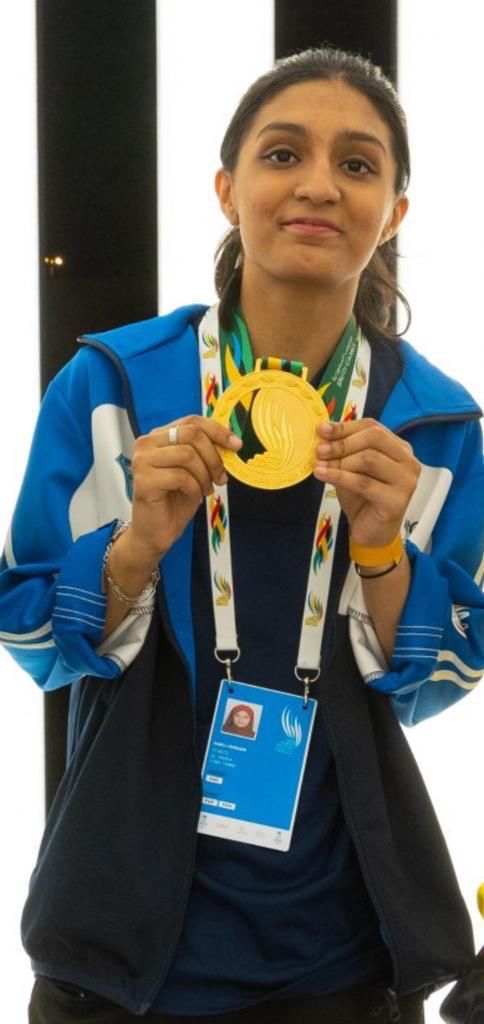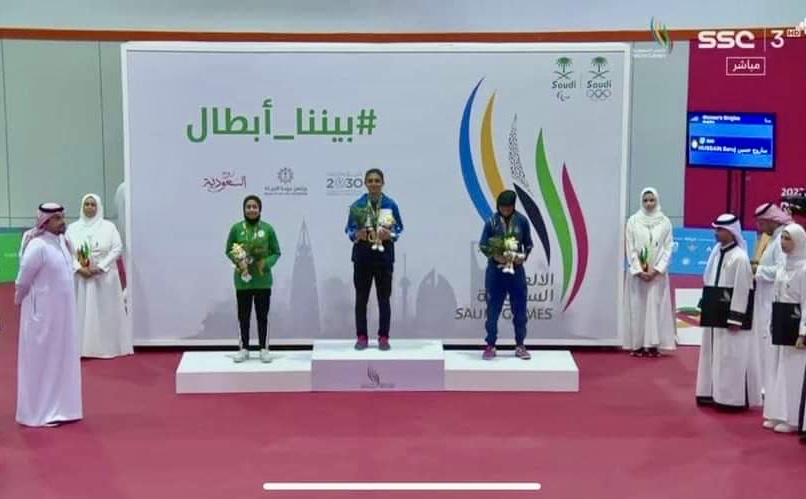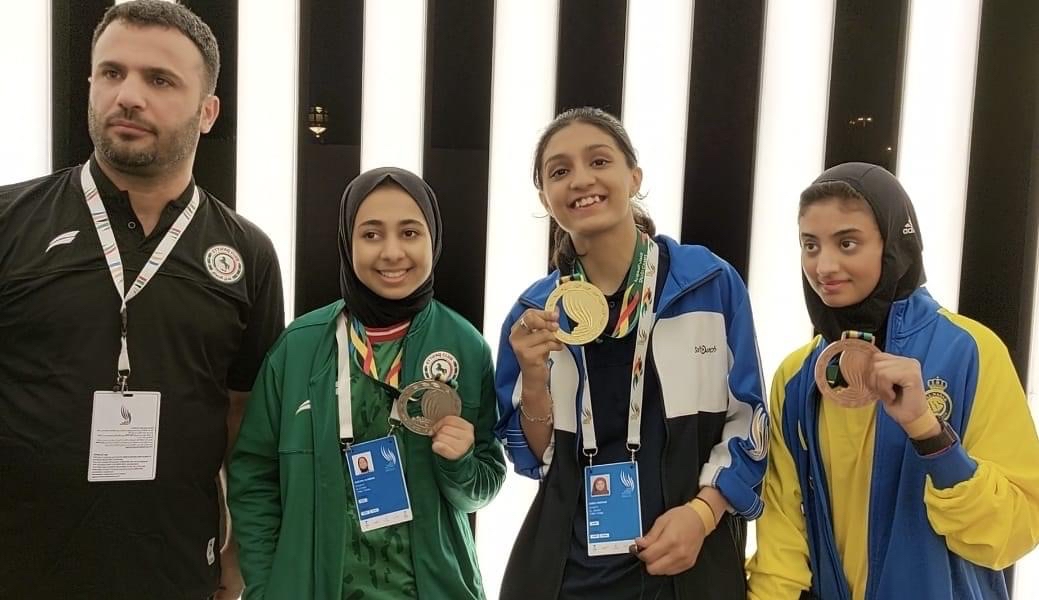ISLAMABAD: A Pakistani expatriate girl, who won a gold medal in the prestigious Saudi Games this month, on Monday said she now aimed to win medals for Pakistan at the Olympics and other international competitions, hailing the Kingdom for providing the opportunity to expatriates to participate in the national event.

Pakistani expatriate girl Sarooj Sajid Hussain poses with her gold medal at the Saudi Games in Riyadh, Saudi Arabia on November 7, 2022. (Courtesy: Sajid Hussain)
The inaugural Saudi Games, held in Riyadh from October 27 till November 7, aimed to provide a platform for athletes to excel to their best potential, inspire youth and demonstrate the Kingdom's ability to host mega events. The games came as part of the Vision 2030 program which, among other things, also places significant emphasis on sports and physical activities to produce a new generation of athletes.
More than 6,000 athletes, with 2,000 supervisors, from over 200 clubs in the Kingdom competed in 45 sporting events, including five Paralympics events, in the 11-day Saudi national games. Saudi authorities also allowed children of expatriates, who were born in the Kingdom, to participate in the games.
“It is indeed an amazing feeling to become the first Pakistani to win a gold medal in the Saudi Games,” Sarooj Sajid Hussain, 16, told Arab News, in an interview over the phone from Al-Khobar on Monday.
“My next aim is to represent Pakistan and win medals for my country in the Olympics and other international competitions.”

Pakistani expatriate girl Sarooj Sajid Hussain (middle) can be seen on the victory podium after winning gold medal at the Saudi Games in Riyadh, Saudi Arabia on November 7, 2022. (Courtesy: Sajid Hussain)
Inspired by her elder brother, Hussain, a student of the Pakistan International School in Al-Khobar, started playing table tennis at the age of seven and has previously won three medals in different competitions in the Kingdom.
The young Pakistani expatriate represents the Al-Nahda Club, where she has been training for the last three years.
She thanked Saudi authorities for providing an opportunity to her despite being an expatriate: “Saudi Arabia is changing now where not only Saudi women but expatriate women are also getting equal opportunities.”
Hussain said she started training "very hard" after the announcement by the Saudi government that overseas athletes who were born in the Kingdom could also participate in the games.
“There were 16 girls from top Saudi clubs in the main round of the tournament and I won a gold medal and one million riyals in cash prize,” she told Arab News.

CaptionPakistani expatriate girl Sarooj Sajid Hussain (second right) poses with her gold medal with other winners at the Saudi Games in Riyadh, Saudi Arabia on November 7, 2022. (Courtesy: Sajid Hussain)
About her journey, the young Pakistani girl said her father supported her and bought a table for her to practice the game.
“Three years ago, I got a chance to play for Al-Nahda Club, where my brother used to play, and then after seeing my potential the club enrolled me and I practiced with their coaches,” she said.
In Pakistan, Hussain represented the army and won medals in different national events.
Her father, Sajid Hussain, came to Saudi Arabia from Faisalabad some 24 years ago to teach physics at Mohammad Al-Mana College of Health Sciences in Al-Khobar.
Sajid said the contributions of women in every field had brought about a "revolution" in the Kingdom.
“Basically, nations build if women are empowered and now, I can see a visible change in the Kingdom that girls and women are doing splendid jobs in every walk of life,” he told Arab News.
"I think it’s a revolution."
Sajid hailed the Saudi government for giving women the opportunity to come forward and play a positive role in the society.
“Crown Prince Mohammed bin Salman has taken a very wise step by opening doors to everyone,” he added.
"He has given confidence to his youth and now it depends on the people how they utilize this opportunity."
Hussain's mother, Rehana Sajid, who is a chemistry teacher at the Pakistan International School, said it was a difficult task to create a balance between her sports and studies, but they succeeded due to coordinated efforts.
“It was the hard work of her father who arranged a club and daily drove her there despite a challenging job. I was responsible for her studies which I managed after she came back from practice,” Rehana told Arab News.
“I am very happy and grateful to the Almighty that with my husband's support, Sarooj could secure this medal.”












